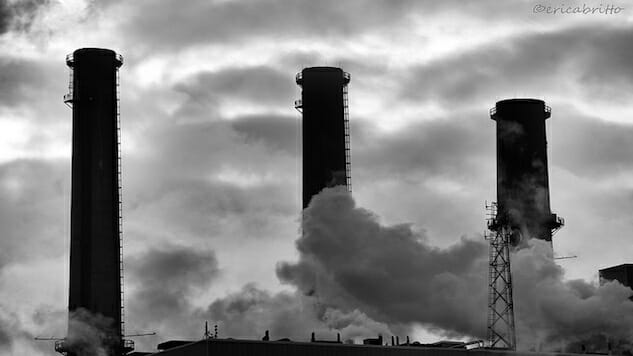Dissecting Trump: Do We Even Need The EPA?

During his first week of presidency, President Donald Trump began one of his first attacks: The Environmental Protection Agency. The agency was created for the purpose of protecting human health and the environment by enforcing regulations passed by Congress. Basically, the goal of the agency, when it was created, was to give every American clean air and water. Simple as that.
In recent years, though, the EPA’s been on the chopping block for most Republicans, who see the agency as a perfect example of government waste and claim the EPA’s far too expensive, kills jobs and stymies economic growth.
Environmentalists emphatically disagree, citing that removing the EPA will not only degrade the quality of air and water but also incentivize states to deregulate pollution in order to attract dirty industries for economic gain. Beyond that, environmentalists point to China’s pollution problems as an example of a country without a centralized environmental agency and the problems it accrues.
So … how important is the EPA?
Point: Revamping the EPA Could Jumpstart the Economy
Before the election, President Trump campaigned that he’d cut the EPA’s budget and eliminate many of the organization’s regulations because, “overregulation presents one of the greatest barriers to entry into markets and one of the greatest costs to business that are trying to stay competitive.”
He’s not exactly wrong.
The EPA is the most expensive federal regulatory agency, with an annual budget of around $8.2 billion. Due to this expense, the Republicans have, for years, hoped to reduce—if not completely eliminate—the environmental agency, referring to it as not only expensive but also a “job killer” because of the regulations, and consequent operational costs, it imposes on businesses. The Competitive Enterprise Institute, a nonprofit, libertarian think-tank in Washington D.C., estimates the annual impact of EPA rules at about $386 billion—or roughly 2.1 percent of the country’s GDP. To put this number in perspective, it’s about the same size as Norway’s entire GDP.
As a so-called “job killer,” the American Action Forum, a nonprofit issue advocacy group that promotes center-right public policy, projects that job losses from the EPA’s carbon rule and power plant regulation could be as high as 296,000. During the confirmation hearing of Scott Pruitt, the new head of the Environmental Protection Agency, Senator John Barasso, Republican of Wyoming, said in the hearing’s opening, “EPA regulations crushed energy jobs in my state.” Senator Shelley Moore Capito of West Virginia echoed Barasso’s sentiment, “The regulatory overreach of the EPA has contributed to economic devastation in my state of West Virginia.”
Furthermore, one of the driving arguments for the dismantling of the EPA is that environmental policy should be left to the states, and the EPA explicitly affirms that their goal is to “Strengthen partnerships with states, tribes, local governments and the global community to deliver on our environmental and health improvements.”
Again, those keywords “states, tribes, local governments” engender the question: Should states and communities decide which environmental policies are important to them? What effects a programmer in San Francisco almost certainly differs from the environmental impacts in rural Nebraska or in New Mexico. Perhaps eliminating the EPA will provide an opportunity for states to implement a similar agency—or agencies—that enact better policies for its residents.
-

-

-

-

-

-

-

-

-

-

-

-

-

-

-

-

-

-

-

-

-

-

-

-

-

-

-

-

-

-

-

-

-

-

-

-

-

-

-

-








































